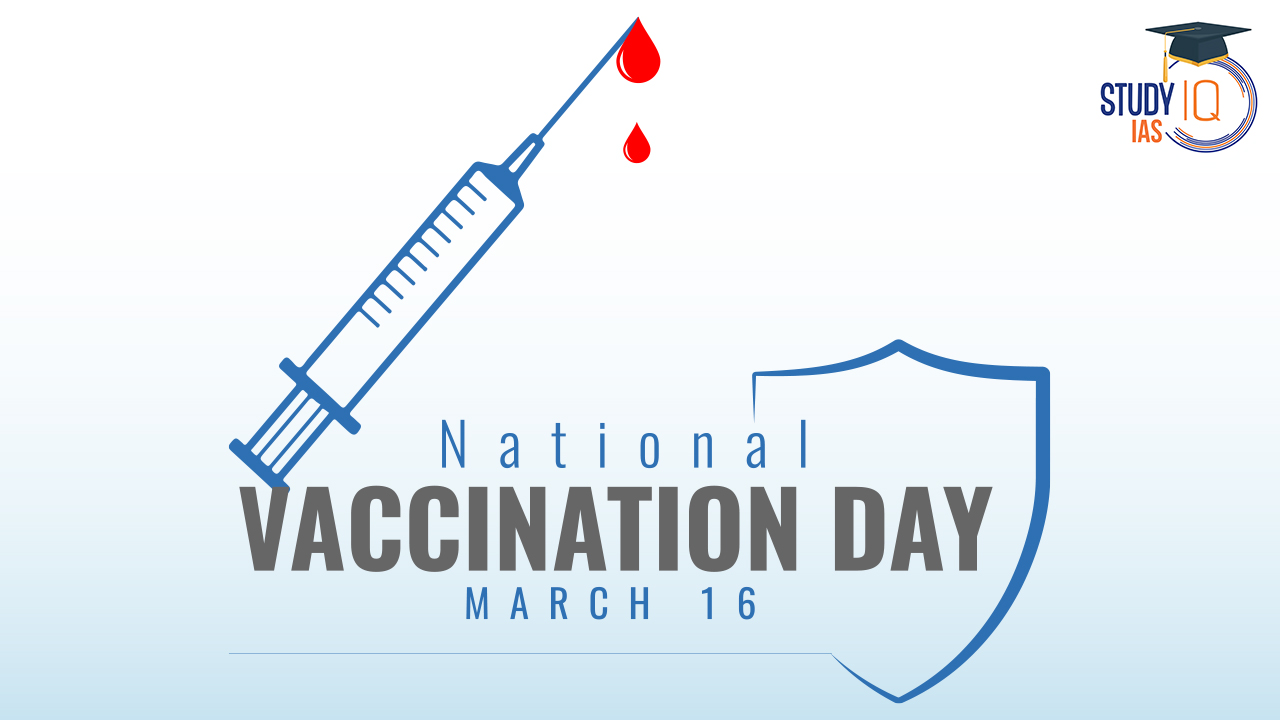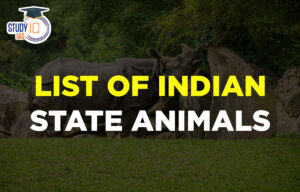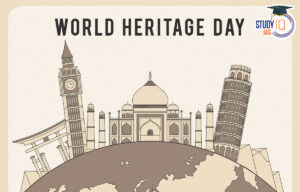Table of Contents
National Vaccination Day 2024
March 16th, 2024, marks a significant date in the calendar of public health in India – National Vaccination Day. This day serves as a poignant reminder of the critical role vaccines play in safeguarding our health and the tireless efforts of healthcare workers in ensuring the well-being of communities. In this History, we will discuss the history, significance, and future implications of National Vaccination Day.
National Vaccination Day History
- 1988: The World Health Organization (WHO) initiated the Global Polio Eradication Initiative, marking a significant step towards eradicating polio worldwide.
- 1995: The Indian government launched the Pulse Polio Vaccination Program as part of efforts to eradicate polio within the country. March 16 was subsequently designated as National Vaccination Day to commemorate this initiative.
National Vaccination Day Overview
|
National Vaccination Day Overview |
|
| Date | March 16th |
| Initiation | 1988: Global Polio Eradication Initiative by WHO |
| Indian Initiative | 1995: Launch of the Pulse Polio Immunisation Programme on March 16th |
| Significance | Commemorates India’s commitment to vaccination and disease prevention |
| Objective | Raise awareness about the importance of vaccination |
| Impact | Significant reduction in vaccine-preventable diseases, particularly polio |
| Success | India certified as polio-free in 2014 after extensive immunization efforts |
| Programs | Pulse Polio Programme, Universal Immunization Program, COVID-19 vaccination drives |
| Join Us on Whatsapp | Click to Join |
National Vaccination Day 2024 Celebration
National Vaccination Day 2024 Celebration:
- Awareness Campaigns: Educating the public about vaccination’s importance.
- Vaccination Drives: Organizing nationwide initiatives to ensure access to vaccines.
- Recognition: Honoring healthcare workers for their dedication and service.
- Community Engagement: Involving local communities through workshops and events.
- Social Media Outreach: Using online platforms to spread awareness and encourage participation.
- Educational Initiatives: Engaging schools and colleges in promoting vaccination awareness.
- Government Support: Government-led programs to facilitate vaccination efforts nationwide.
Important programs for Vaccination Day
| Program | Description |
| Pulse Polio Immunization Programme | This program, initiated in 1995, aims to eradicate polio by conducting nationwide vaccination campaigns targeting children under the age of five. It involves administering oral polio vaccine drops to every child to prevent the spread of the poliovirus. |
| Universal Immunization Program (UIP) | The UIP, launched in 1985, is a comprehensive vaccination program that provides free vaccines against several vaccine-preventable diseases, including measles, diphtheria, pertussis, tetanus, polio, and tuberculosis, to children and pregnant women across India. |
| COVID-19 Vaccination Campaign | In response to the COVID-19 pandemic, extensive vaccination campaigns have been launched to administer vaccines against the coronavirus. These campaigns aim to achieve widespread vaccination coverage to control the spread of COVID-19 and protect public health. |
| Routine Immunization | Routine immunization programs are ongoing efforts to ensure that individuals receive essential vaccines as per the recommended immunization schedule. These programs target infants, children, adolescents, and adults to prevent various infectious diseases. |
| National Rural Health Mission (NRHM) | The NRHM, launched in 2005, includes initiatives to improve access to healthcare services in rural areas, including vaccination services. It aims to strengthen primary healthcare infrastructure and ensure the delivery of essential health services, including immunization, to rural communities. |
| Maternal and Child Health (MCH) | Maternal and child health programs often incorporate vaccination services as part of their broader efforts to improve the health and well-being of mothers and children. These programs focus on providing prenatal care, postnatal care, and immunization services to pregnant women and children. |
National Vaccination Day Significance
- Disease Prevention: Raises awareness about the importance of vaccination in preventing the spread of infectious diseases.
- Public Health Promotion: Promotes community-wide immunization to protect individuals and populations.
- Healthcare Recognition: Acknowledges the efforts of healthcare workers in administering vaccines and safeguarding public health.
- Eradication Efforts: Commemorates past successes, such as the eradication of diseases like polio, and inspires continued efforts towards eliminating other preventable illnesses.
- Education: Provides a platform to educate people about the benefits of vaccination and dispel myths or misconceptions.
- National Commitment: Reflects the nation’s commitment to prioritizing public health and ensuring access to essential healthcare services for all citizens.
- Global Health Impact: Demonstrates India’s role in global health initiatives and contributes to international efforts to combat infectious diseases.
National Vaccination Day UPSC
National Vaccination Day signifies India’s commitment to public health through widespread immunization. Celebrated annually on March 16th, it highlights the importance of vaccination in preventing diseases. The day honors healthcare workers and promotes awareness about vaccine benefits, dispelling myths. It underscores India’s progress in disease eradication, particularly against polio, and encourages continued efforts to ensure universal access to vaccines, safeguarding the health of communities nationwide.


 List of Indian State Animals with their ...
List of Indian State Animals with their ...
 World Heritage Day 2025, Theme, Objectiv...
World Heritage Day 2025, Theme, Objectiv...
 World Hemophilia Day 2025: Theme, Histor...
World Hemophilia Day 2025: Theme, Histor...





















